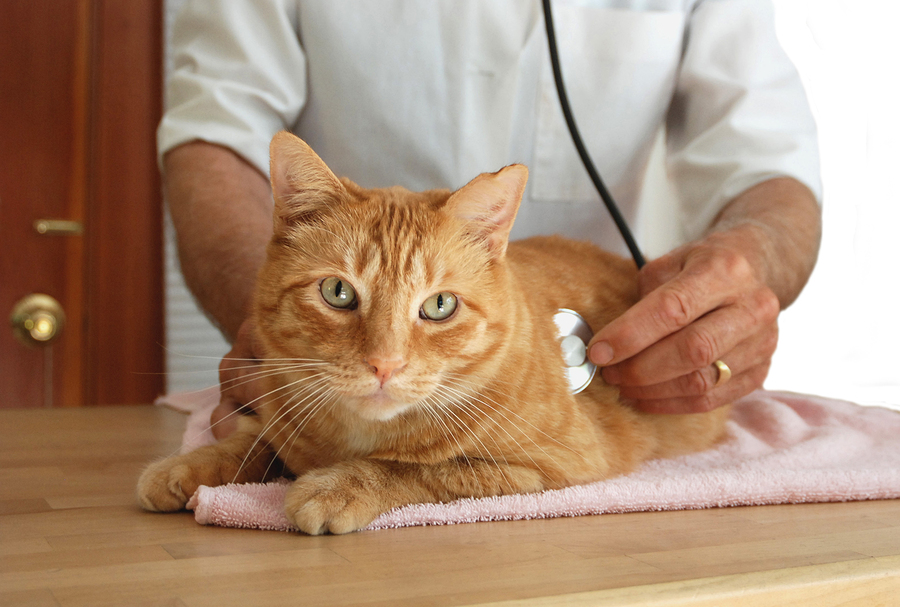High thyroid levels are fairly common in older cats, but the condition can be somewhat hard to recognize, especially in its early stages. A reader wrote asking me what I could tell her about the disease:
Q: My cat has been diagnosed with hyperthyroidism. My friend’s hyperthyroid cat had completely different symptoms, so I was surprised by the diagnosis. What can you tell me about this disease?
A: Hyperthyroidism — high levels of thyroid hormones circulating in the blood — is a common concern in cats 10 years and older. We see it in both males and females, and any breed or mix can be affected.
Depending on the individual cat, signs range from mild to severe, and they can be very different from cat to cat. Among the almost 30 signs that can indicate the presence of hyperthyroidism are weight loss, irritability, depression, vomiting, diarrhea and a ratty-looking coat. But some cats with hyperthyroidism are energetic and have a great appetite, so it doesn’t occur to their owners that there might be anything wrong with them. The reason the signs are so varied is because thyroid hormone affects every organ system in the body.
Fortunately, lab tests — a complete blood count, chemistry profile and urinalysis — can tell us if a cat has hyperthyroidism or rule out other diseases that cause similar signs.
Even if your cat’s signs are mild, it’s important to diagnose and treat hyperthyroidism. Cats with the disease are prone to hypertension (high blood pressure), which can lead to more serious problems, such as kidney failure or heart disease.
Hyperthyroidism has several possible treatments: surgical removal of the thyroid gland (thyroidectomy), administration of radioactive iodine or antithyroid drugs given for the rest of the cat’s life. The treatment your veterinarian recommends depends on factors that include your cat’s age and general health, the presence of other diseases and your budget. Ask your veterinarian to go over all the options with you to make the best decision for yourself and your cat.
Read more, including about canine sports, in this week’s Pet Connection!


